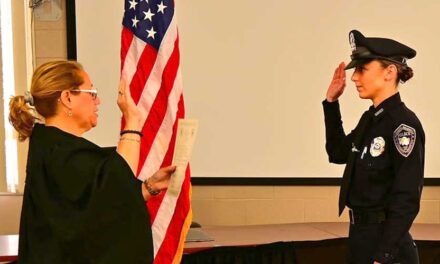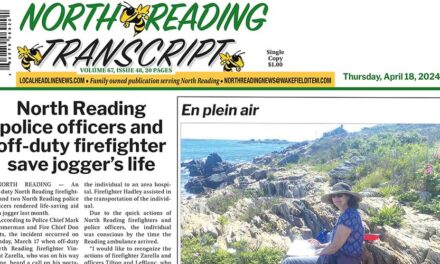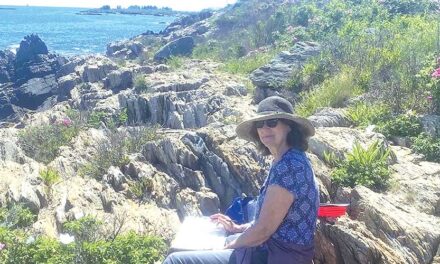By BOB TUROSZ
NORTH READING — When Town Meeting gets underway on Monday, Oct. 6, in the Daniel Shay Performing Arts Center of the new North Reading High School, there will be 22 articles on the warrant, including one sponsored by the police department that would restrict the locations where Level 3 sex offenders can live in town.
If adopted, the bylaw would restrict where Level 3 sex offenders can establish a permanent residence in town in relation to an elderly housing facility, school, day–care center, park or school bus stop. The bylaw would only apply to Level 3 sex offenders, those who are considered a risk to the community and more likely to repeat.
“The purpose of this bylaw is to enhance public safety by creating a safe and secure area around elderly housing and where children regularly congregate” from those categorized as Level 3 by the state Sex Offender Registry Board, said Police Chief Michael Murphy.
Murphy said the proposed bylaw is “narrowly tailored” to limit the opportunity for a Level 3 sex offender to approach or come into contact with children and senior citizens.
As written in the warrant, the bylaw would prohibit anyone “finally classified” as Level 3 by the Sex Offender Registry Board from establishing a permanent residence within 1,000 feet of any elderly housing facility, school, day–care center, park or school bus stop. The police chief or his designee would hold a hearing to determine whether the offender poses a risk to children and/or the elderly and should therefor be restricted as to where he or she can live.
Level 3 sex offenders who establish permanent residence in town prior to the date the bylaw takes effect would not be regulated by the bylaw. Also, if the elderly housing, school, day–care center, park or school bus stop is established after the sex offender establishes his or her permanent residence, they would not be regulated. Also, the bylaw couldn’t be enforced to prohibit a Level 3 sex offender from exercising his or her right to vote or to attend church.
Chief Murphy showed a draft map of the areas in town that would be off limits to Level 3 offenders if the bylaw is passed and according to the map, a significant portion of town would be restricted. There are over 400 bus stops in the community, which could open the bylaw up to legal challenges, a possibility Murphy foresaw.
“Where would a Level 3 sex offender be allowed to move to?” asked Selectman Stephen O’Leary.
“This clearly does cover a significant portion of town,” said Chief Murphy. “We’ve reviewed this with the town administrator and town counsel, so we’re looking at other alternatives and whether we should reduce the setbacks for bus stops because there are over 400 bus stops.”
Murphy agreed with a point raised by Selectmen Chairman Robert Mauceri, that school bus stops “move around every year and it’s a challenge that we are going to be facing.” Member Joe Foti asked whether it would be necessary to clearly mark the bus stops, because right now they are not designated as such.
Murphy said that when a Level 3 offender moves into town he or she has to notify the chief, so he would know ahead of time. Murphy said he would issue a letter to the offender that he or she couldn’t live within the restricted area of a bus stop, so the offender would have to either move out or not move in. Murphy said he would receive the bus stop information from the school department.
Town Counsel Darren Klein said the proposed bylaw is a good example of how the chief is trying to be proactive. The key area is balancing the town’s compelling interest in protecting public safety while making sure the bylaw is not overly restrictive or too broad. Klein said he would probably recommend some adjustments so that it covers a reasonable area, not nearly all the town.
“We may be walking a fine line between protecting the town and appearing so restrictive that the bylaw gets thrown out by the Attorney General,” said Mauceri. Murphy said they’ve discussed that at length and are working to make sure it doesn’t happen.
“We have to respect the constitutional rights of everyone,” Murphy said. “We will look at whether or not to reduce the setbacks, particularly for bus stops and work with the map for town meeting.” He said the alternate map will be ready for town meeting.
Klein said he’s concerned the map might appear too restrictive and that’s why they’re working on making it less so. “You can’t have a situation where there’s nowhere in town for somebody to live. That’s why we’re looking at the alternatives.”




